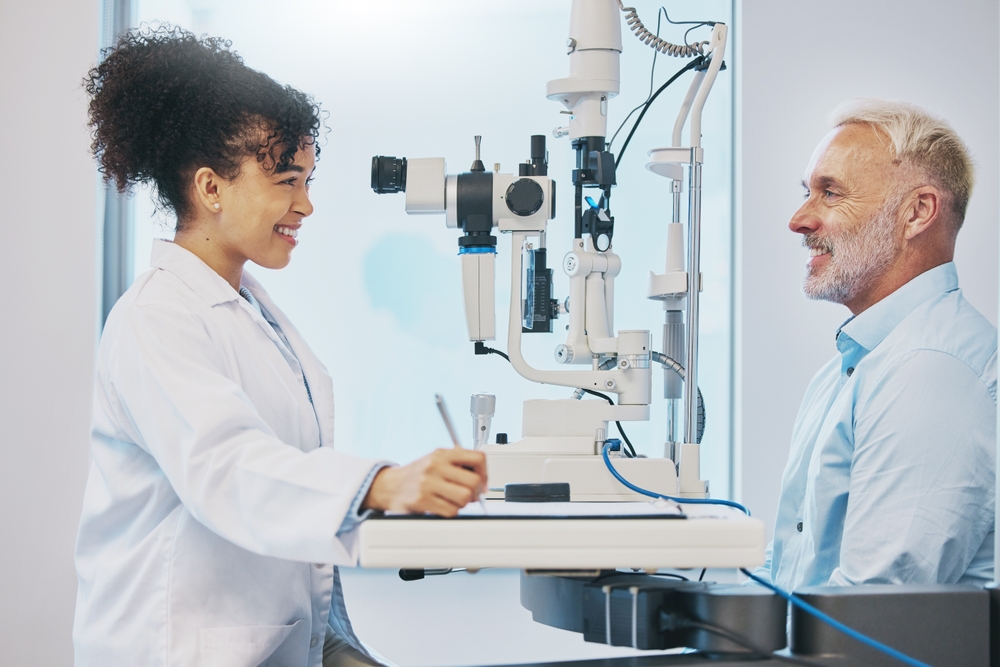Understanding What to Expect During Cataract Surgery
September 10, 2024
Cataracts are a very common eye condition. They tend to form very slowly, meaning you may not realize you have them at first.
You may not also notice any changes to your vision, at least initially. But eventually, your cataracts can make it hard to see well enough to perform daily tasks.
That's when most cataract surgeons recommend undergoing cataract surgery to remove both your natural lens and the cataracts. Since cataracts are so common, it's unsurprising that cataract surgery is one of the most commonly performed medical procedures.
Because of this, cataract surgery is a simple, low-risk, and successful procedure that millions of patients undergo annually. Keep reading to understand what to expect during cataract surgery!
When Should You Get Cataract Surgery?
When you're first diagnosed with cataracts, you may not need cataract surgery immediately. Cataracts can take years to develop to the point that they cause any visual problems.
For that reason, most cataract surgeons only recommend the procedure once cataracts begin to affect your quality of life. It can sometimes be hard to determine when this point is, but your ophthalmologist at Advanced Eye Care & Aesthetics can help.
If your cataracts are diagnosed early and monitored, it's easier to know when any visual problems you have are because of your cataracts. Once you know your cataracts are the reason activities are more challenging, it's time to consider cataract surgery.
Then, you can schedule a cataract surgery evaluation, during which a surgeon can assess your cataracts and schedule a procedure if appropriate.
Ready for Cataract Surgery?
Find out if you’re a candidate.
How Do I Choose an IOL?
 Once your cataract surgery procedure is scheduled, the next step will be choosing an IOL. An IOL, or intraocular lens, is an artificial lens used to replace your natural lens during cataract surgery.
Once your cataract surgery procedure is scheduled, the next step will be choosing an IOL. An IOL, or intraocular lens, is an artificial lens used to replace your natural lens during cataract surgery.
Your natural lens is removed to remove the cataract that's formed. The IOL helps you see clearly after cataract surgery and takes over the job that the natural lens is no longer capable of doing.
There are different kinds of IOLs. One option, the monofocal IOL, is standard and covered by insurance with the surgery cost.
Other IOLs, called premium IOLs, have an extra out-of-pocket expense. However, premium IOLs can enhance your vision and reduce or even eliminate the need for reading glasses and other visual aids.
Before you have cataract surgery, your cataract surgeon can recommend the kind of IOL that will best suit you, depending on your lifestyle, visual needs, budget, and what type of vision you want after cataract surgery.
What Happens Before and During Cataract Surgery?
Before you can have cataract surgery at Advanced Eye Care & Aesthetics, you'll receive an anesthetic in the form of numbing eye drops. Cataract surgery is an outpatient procedure that requires you to be awake.
Once it's over, you can go home. However, because numbing eye drops are used, you will need someone to drive you home after the procedure, as your vision may be unstable.
You'll have the numbing eye drops placed into your eye, which you'll disperse by blinking. Once numb, your cataract procedure can begin.
You may also receive a mild sedative to help you relax during cataract surgery.
Creating Incisions
To access your natural lens, your Advanced Eye Care & Aesthetics cataract surgeon will make small incisions in your eye, going through your cornea and into the lens capsule. These incisions are quite small and made with a small bladed instrument or a laser, depending on whether you have laser cataract surgery or traditional cataract surgery.
The incisions are as small as possible to minimize scarring and recovery time.
Removing Your Natural Lens
After accessing the lens capsule, your cataract surgeon will break the natural lens into smaller pieces using ultrasonic energy and an ultrasonic instrument. Patients undergoing laser cataract surgery have the natural lens softened with a laser to make the cataract easier to remove.
As the ultrasonic instrument breaks apart the lens, the pieces are gently sucked away using a vacuum with a process called phacoemulsification.
Positioning the IOL
With the natural lens entirely removed, all that's left is to replace it with your chosen IOL. No matter which IOL is selected, your cataract surgeon implants them similarly.
First, they will fold the IOL to fit it through the small incisions into the lens capsule. Then, they insert the IOL through the incisions into the lens capsule.
Once inside, the IOL is carefully unfurled and positioned as necessary. Because no stitches or sutures are needed, the procedure is complete. All incisions are small enough to close up and heal independently.
Learn More About Cataract Surgery
Schedule a Cataract Evaluation
Results and Recovery After Cataract Surgery
 Undergoing cataract surgery only takes about thirty minutes to an hour at most to complete. Afterward, you'll be observed for about an hour before being sent home to rest and recover.
Undergoing cataract surgery only takes about thirty minutes to an hour at most to complete. Afterward, you'll be observed for about an hour before being sent home to rest and recover.
Remember that you need a friend or family member to drive you home. Most patients are cleared to drive after their first follow-up appointment the day after the procedure.
Recovery from cataract surgery is easy, with minimal discomfort. You'll receive post-operative instructions from your cataract surgeon to follow as directed.
Most patients notice improved vision a few days after the procedure. No matter which IOL you choose, your vision is significantly better.
After all, no longer having a cataract causing glare, halos, or blurry vision can make a big difference! If you have cataracts in both eyes, you'll have cataract surgery on each eye separately.
You'll need to leave enough time for the first eye to recover before you can have the procedure performed on the second. Once you've had cataract surgery on both eyes, you'll be able to see clearly and finally enjoy life without cataracts standing in your way.
Is it time for you to have cataract surgery? Find out by scheduling your cataract evaluation at Advanced Eye Care & Aesthetics in Bel Air, MD, today! Isn't clear vision worth it?



